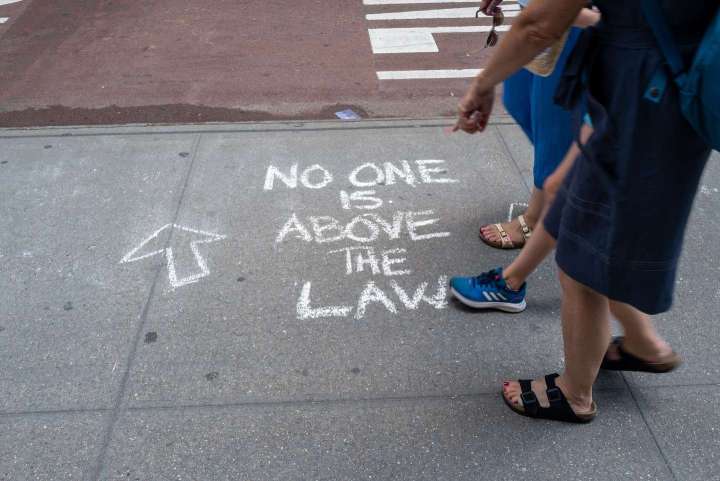National security being what it is, we may never know the exact contents of the documents that FBI agents carried out of Mar-a-Lago this week. But we can already see what Donald Trump’s defense will be.
Inside Trump’s chamber of secrets

Let’s get a few things straight. If you’re president, as I understand it, you do have the right to declassify whatever documents you want. But there’s a process for doing so. You’re supposed to submit those documents to the appropriate agencies for review, and then they must be formally categorized as declassified.
This should go without saying, but since we’re not exactly killing it on basic civics these days, let me add that former presidents can’t declassify anything. That would be like Bill Clinton trying to retroactively issue a pardon.
By the way, if you were wondering just how desperate the once intellectually vibrant conservative movement has become, consider one Charles Stimson of the Heritage Foundation, who told NBC News that “there’s a rich debate about whether or not a document is declassified if a president has decided but not communicated it outside of his own head.”
Follow Matt Bai‘s opinions
FollowReally. And where’s this rich debate on presidential telepathy taking place, exactly? The “Stranger Things” fan site?
But let’s leave aside this whole arcane question of what’s properly classified and what isn’t. We’ll find out more in the days ahead about why the FBI suspects Trump may have broken several national security laws, including the Espionage Act.
The larger point here is that the whole fiasco underscores the most disturbing thing about Trump’s term in the White House. Trump functioned as a president, more or less, but the underlying concept of the presidency somehow always eluded him.
Everyone who preceded Trump accepted the idea that the office is held in a sacred and temporary trust. The White House and everything that comes with it — the salutes and the planes, the couches and carpets, the weird things people gift you in foreign countries — belong to the country and its history, not to you. You’re just hired to manage the place for a while.
Even Richard M. Nixon, inventor of the so-called imperial presidency, was made to understand this in the end. He left Washington for the last time on something called Air Force One and landed in California on a flight re-designated as SAM 27000 (SAM standing for “special air mission”).
Somewhere in the skies, he lost the office and all the swag that accompanied it, including the plane’s special status.
Any American kid who’s seen “Hamilton” understands this concept of transient leadership, but Trump simply did not. Having come into office on the power of a popular uprising, Trump imagined he had been sent to Washington not to restore the institutions of government, but to replace them.
In Trump’s worldview, he acquired the office and the generals and the state secrets, just as he’d once acquired the Eastern Air Lines’ shuttle, and this whole idea that he was privileged to serve was a bunch of deep-state nonsense. I don’t think it’s hyperbole to say that he saw himself as an American Putin — elected, perhaps, but governing at the will of some stronger current than the public’s fleeting favor.
Other presidents, Joe Biden among them, have spoken often about the immense honor of holding the office, mindful of the predecessors they admired and the unfinished business they would leave their successors. You may correct me here, but can anyone remember any instance of Trump musing on his obligations to history?
No, Trump seemed oddly uninterested in all of that, dismissing even Abraham Lincoln’s impact as “questionable.” If Trump ever considered a future with a president other than himself, he gave no indication.
So, of course, Trump refused to leave the job until forced, and of course he held on to material that clearly belonged in public hands. When the presidency is an acquisition rather than an opportunity to serve, then everything that comes with it is rightfully yours to do with as you please.
Until this week, I wasn’t sure Trump would really run again and risk losing a primary, much less a general election. But now I presume he will, if only because he’ll want to regain control of the government forces that are fast arraying against him. When the feds broke into Trump’s chamber of secrets, they unleashed something dark and rapacious within.
It’s Trump or the democracy now. I have a hard time imagining how we’d end up with both.






